Our Mission
The International Rescue Committee responds to the world's worst humanitarian crises, helping to restore health, safety, education, economic wellbeing, and power to people devastated by conflict and disaster. Founded in 1933 at the call of Albert Einstein, the IRC is at work in over 50 countries and more than 20 U.S. cities helping people to survive, reclaim control of their future and strengthen their communities.
Over the past 90 years, the IRC has built a strong position as the largest refugee resettlement agency in the United States, and has paid close attention and provided service to the recent conflicts in Afghanistan (providing education and protection to 1 million Afghan citizens including women and girls) and Ukraine (collaborating with nonprofit organizations in both Ukraine and refugee-receiving Poland to provide aid).
How Your Donations Help
- $30 can provide 1 family with trucked water for a month.
- $125 can provide 1 teacher with a year’s worth of books and supplies for their classroom.
- $230 can cover the whole cost of treating 1 child for acute malnutrition.
- $500 can help equip 1 emergency mobile medical team.
- $1,000 can provide 1 baby incubator.
- $3,000 can provide 2 water-quality testing kits.
- $170 can provide 1 refugee survival kit.
Donate Now
Our Impact
Palestine
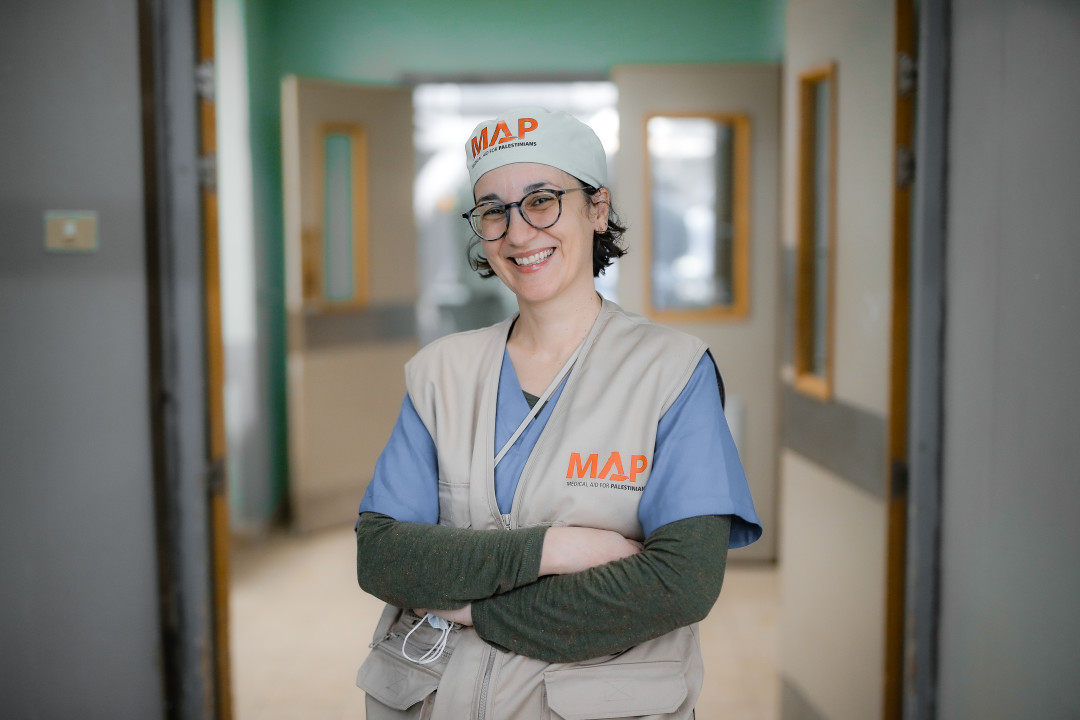
Since Dec 2023, the International Rescue Committee (IRC) and Medical Aid for Palestinians (MAP) have deployed emergency medical teams to provide life-saving medical care. The team, composed of trauma doctors, surgeons, pediatricians and water and sanitation experts, are offering surge and relief support to hospitals and providing life-saving medical care to injured Palestinians. In March 2024, Dr. Konstilia was on a two-week deployment of the MAP/IRC emergency medical team in Gaza. “I felt that I have to be here. I have to try and offer whatever I can offer. I'm impressed with the resilience of the [Palestinian] people because I don't think that there are any people that haven't lost something. Many people have lost families. Almost everyone has lost their house, and still, they're coming to work and they are helping people." — Dr. Konstilia
Nigeria
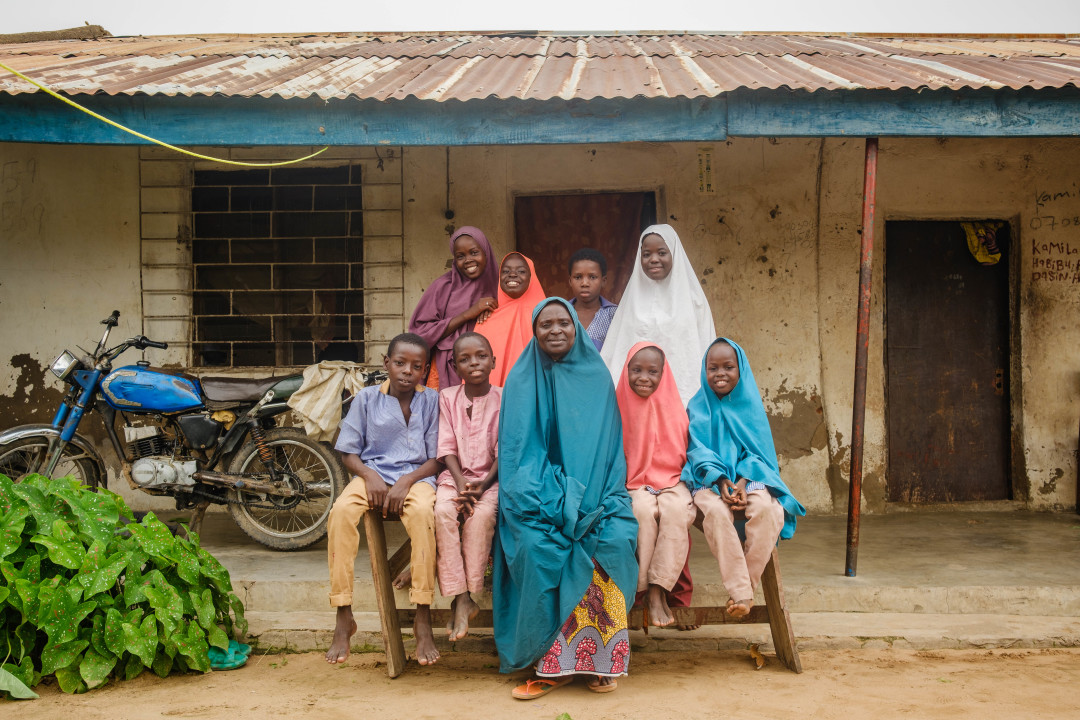
Faiza, a 60-year-old fish farmer, lost her husband earlier this year, leaving her to provide for their eight children. “We went through a lot more than anyone can imagine," says Faiza. "There was no food in the house, even when my husband was alive, sometimes we went to bed hungry.” Faiza signed up to receive anticipatory cash support from the International Rescue Committee. These funds are designed to be distributed before climate shocks like flooding and droughts. “When I received these funds, things started to get better. We have seen light and happiness—both my children and I, because things are so much better.” With the money she received, Faiza was able to buy maize for farming and pay the school fees for all eight of her children. “I started a [fish farming] business with the remaining money. That will help my children's education—when they need pencils, pens, books or uniforms. When it’s time to pay school fees, I will use the profit to pay these.” -Faiza
Syria
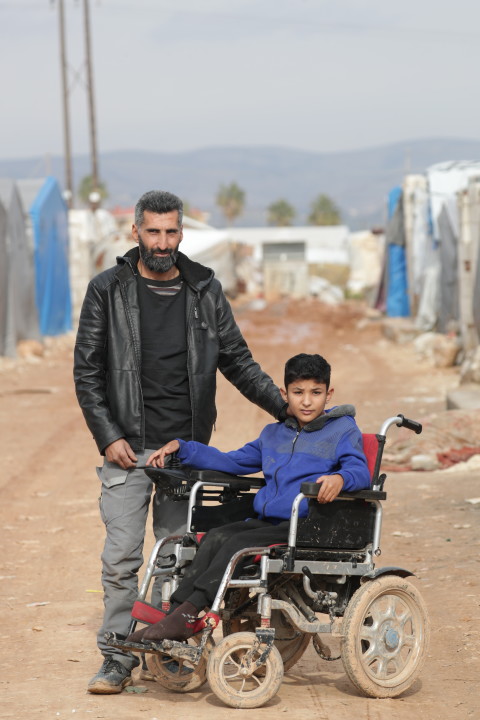
Yahya,* 15, and his family lived in a displaced persons' camp in northwest Syria after being displaced when a massive earthquake struck the region on February 6, 2023. Yahya and his family (his parents and three brothers) needed to relocate again. During a visit to the new camp, the IRC saw that Yahya was in poor health and that he needed a wheelchair. Part of his psychological distress stemmed from his inability to leave the tent, exacerbated by his family's financial struggles and loss of official documents during their displacement. The IRC and a partner organization, Shafak, provided Yahya with medical exams, an electric wheelchair, and psychosocial support sessions. Additionally, the legal team assisted the family in obtaining new identification documents. “When the earthquake hit... we came to the camp. Then, the [IRC] saw me, and they did their best. They took me to a healthcare center, examined me and brought me a wheelchair. ” -Yahya *Name has been changed to protect the client’s privacy.
Kampala, Uganda
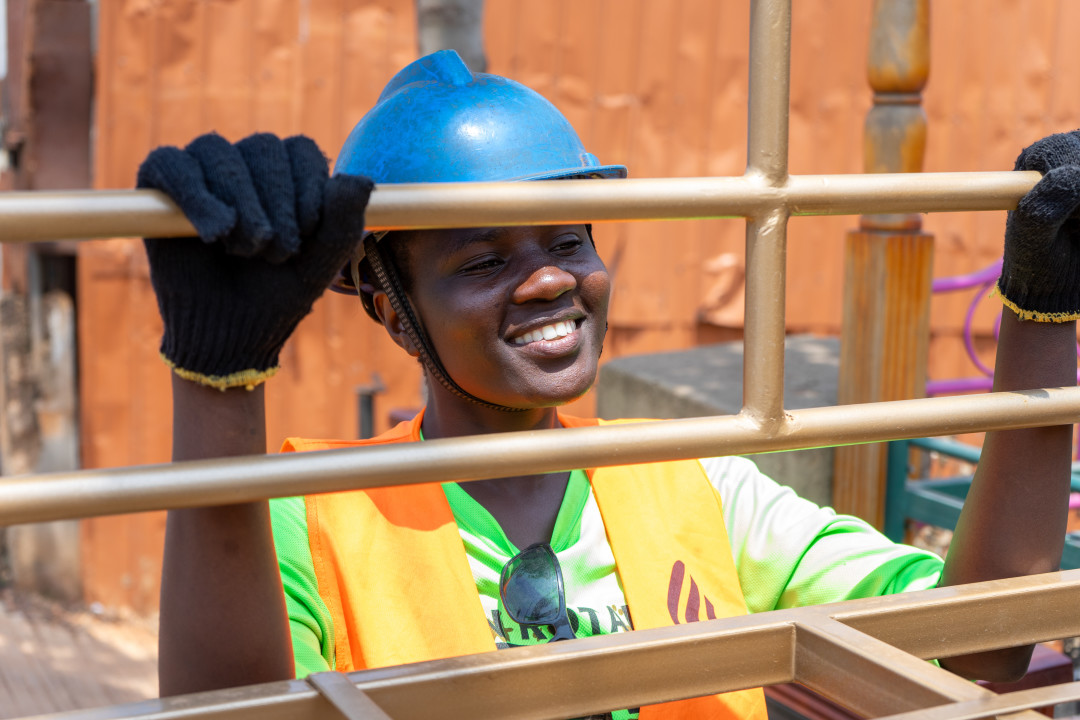
When 21-year-old welder, Rahma’s family didn’t have enough money to send her to school she was sent to live with her older sister in Kampala. This is where she heard about the IRC and Ikea Foundation’s Re:BUiLD Program. “My sister told me to fill the forms and I took them” Said Rahma, “the good thing is they called!” Rahama studied Welding and was ready to take her training to the next level. Looking for local opportunities for a work placement wasn’t easy as a young woman. “I went to ask for a place to do my work from to study but the guys told me we cannot give girls a job, they told me to go to the hotels and start serving foods.” Even some of her colleagues where she works now didn’t believe in her when she first arrived. “The first day I came here I met some guy here. The guy told me what have you come here to do? I tell the guy I'm here for welding and he said 'you cannot do this job.' I said yes if you can learn that means that I will also learn. So, the guy gave me the opportunity and said: ‘if you can compete with the guys, then you can stay here and work.’ So, I had to compete with them and I'm still here, not giving up.” Rahma said that after a while her male colleagues started to help her and her female colleague at work. Working as a Welder has meant Rahma is able to support herself and her sister and even send money back to her mother. “This job has changed a lot for me,” She says, “I can own my own phone. I lived for a bit without a phone. I came to my sister without a phone. I couldn't afford to buy for me a phone because even some time could sleep without eating.” As for the future, Rahma dreams of running her own business and training other young people like herself. “I would love to offer trainings to anyone who's willing, especially the girls. I can learn today and share that opportunity to anyone.”
Arizona, USA
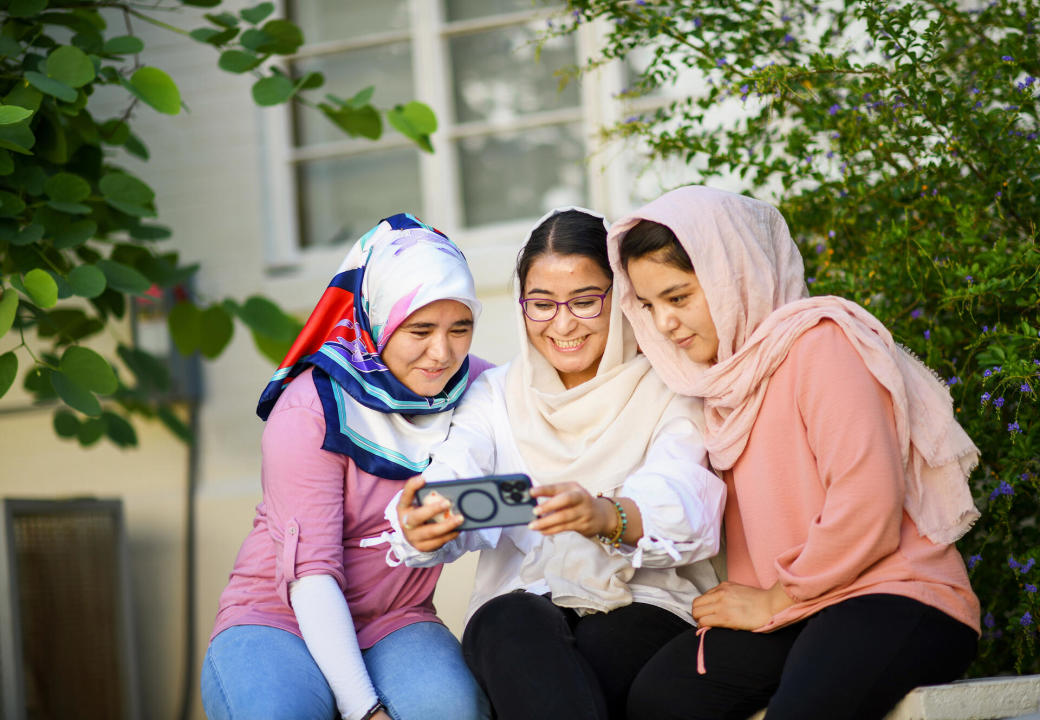
In August of 2021, Arifa, Zahra and Hadisa found themselves stranded outside Kabul airport with a group of 170 students. The Taliban had just taken control of the country and they were among the thousands hoping to evacuate—even if it meant leaving their families behind. The situation was tense and dangerous. Today, they’re enrolled at Arizona State University in the United States, their days packed with activities and studying. Zahra is studying towards a degree in Law and hopes to one day work for the U.N. Hadisa, a talented skateboarder, is studying software engineering. Hadisa’s dream is to find ways to help those still struggling in Afghanistan.“I really would like to do something for the girls of Afghanistan, especially for those who have lost their parents or don't have someone to support them,” she says. “I’m going to bring change to the next generation of Afghanistan.” Arifa is studying cybersecurity and is an active athlete, passionate about martial arts, including taekwondo. The students are all in agreement that they want to dispel stereotypes about Afghanistan. “It hurts me when people say, ‘I’m sorry that you are from that country,’” says Hadisa. “We face many challenges,” adds Arifa, “but we still try our best. We are stronger and more knowledgeable than the world thinks.”
Causes We Support
Countries We Serve
United Nations Sustainable Development Goals
The IRC has a unique approach for delivering impact to people affected by conflict and disaster. Our approach has four important aspects. Taken together, these set us apart: < Toughest places focus. Helping people in the world's toughest and most remote places, responding quickly and aiming to stay as long as we are needed. < Putting people first. Developing and deploying a wide range of programmes to address people's multifaceted needs and make the greatest impact. < Relentless improvement. Constantly adapting and improving our programs. Good enough is never an option for the people we serve or our staff worldwide. < Building community. Helping people to become part of their new communities worldwide, including in Europe and the Americas.